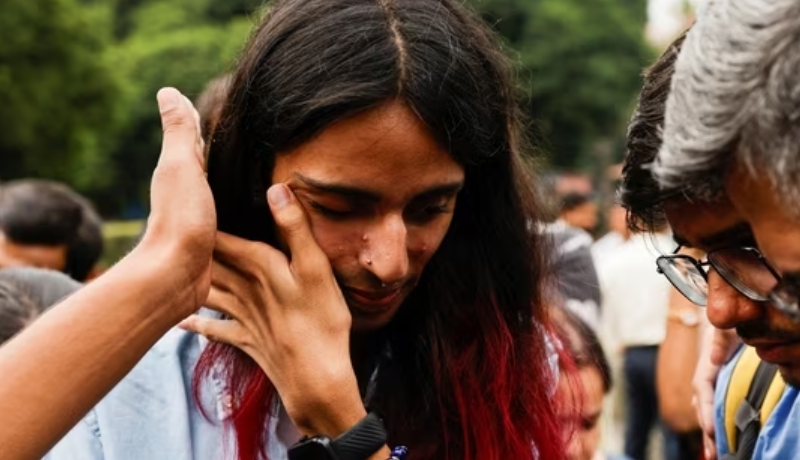In a significant decision that respects India’s deeply rooted cultural and societal values, the nation’s Supreme Court has declined to legalize same-sex marriages. This ruling has dashed the hopes of some LGBTQ+ activists while being celebrated by those who uphold the traditional sanctity of marriage.
The court’s decision to forego the legalization of same-sex unions is rooted in India’s rich cultural tapestry, which is steeped in age-old traditions. The acceptance of the government’s proposal to establish a panel to further examine the extension of legal rights and benefits to same-sex couples demonstrates a balanced approach that seeks to harmonize modern aspirations with historical values.
While activists and same-sex couples may express disappointment over the court’s decision, it is essential to acknowledge the complexity of the issue. The Supreme Court’s ruling recognizes that traditional marriage norms have been deeply embedded in Indian society for centuries and should be respected.
Allowing same-sex marriages in India presents a significant departure from the existing legal and cultural framework. This decision echoes the sentiments of many Indians who believe that preserving the conventional definition of marriage aligns with the societal norms and values that have been integral to the nation’s identity.
The court’s stance that legalizing same-sex marriages would not align with India’s existing system is a reflection of the conservative viewpoint that has prevailed throughout the country’s history. It underscores the importance of upholding traditional family structures and relationships.
Despite this decision, it is important to note that the Indian judiciary is open to discussing the rights of same-sex couples and potentially expanding their legal protections. This approach respects the need to adapt to evolving social dynamics while staying true to the nation’s cultural ethos.
In the face of this verdict, it is vital for activists to engage in constructive dialogue and continue their campaign for LGBTQ+ rights. While the Supreme Court may have refrained from legalizing same-sex marriage, the commitment to addressing the legal needs and concerns of same-sex couples is a positive step forward.
The court’s decision to uphold the traditional values that have long been cherished in India reflects a balanced approach that respects both the aspirations of the LGBTQ+ community and the cultural traditions that shape the nation. It is through such an approach that India can navigate the path toward a more inclusive society while preserving its rich heritage.








